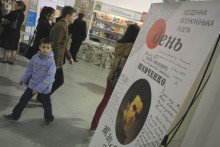This week the Kyiv-based Arsenal Art Center hosted the Fourth International Book Arsenal Exhibit. It was ceremoniously opened by the newly appointed Minister of Culture, Yevhen Nyshchuk. Among those present were rank-and-file Kyivites who wanted to buy books for their home libraries and rub elbows with men of letters, as well as members of the capital’s beau monde: ambassadors, government officials, musicians, artists who willingly posed for the media cameras and gave interviews, as well as presidential candidates, among them Vitali Klitschko, Olha Bohomolets, even the Right Sector’s leader Dmytro Yarosh, known for his dislike of publicity events. There were also members of the Maidan Samooborona (Self-Defense) and officials of the emergency management ministry (MNS) who had apparently mustered up the courage to attend the launch of the Book Arsenal exhibit after all the dramatic changes they had gone through. Greetings and salutatory addresses seemed to go off screen as guests of the art festival found themselves reiterating Ukraine’s current challenges and menaces.
Guests who represented overseas cultural institutions in Ukraine repeatedly emphasized Europe’s solidarity with this country. Goethe-Institut director Vera Bagaliantz thanked the Ukrainian intellectuals who were taking an active part in the discussion of Ukraine in Germany. She noted that it was thanks to their determined stand and bilateral cooperation in the cultural domain that German society now could have a better picture of what was happening in Ukraine; that the Berlin Academy of Arts recently hosted a meeting between Ukrainian men of letters and European Parliament members who represented Germany, and that, owing to the dedicated effort of Ms. Catherine Raab, head of the Eastern Europe department at the Suhrkamp Verlag, German publishing house, all literary events in the country start today with the recitation of Ukrainian poems. “Such examples are precisely what helps us keep our hope [for Ukraine] at this trying period,” Bagaliantz said. Guests from abroad also reiterated their concern about national literary publications in Ukraine these days, saying they were prepared and willing to share their experience of launching government-run book-publishing relief programs.
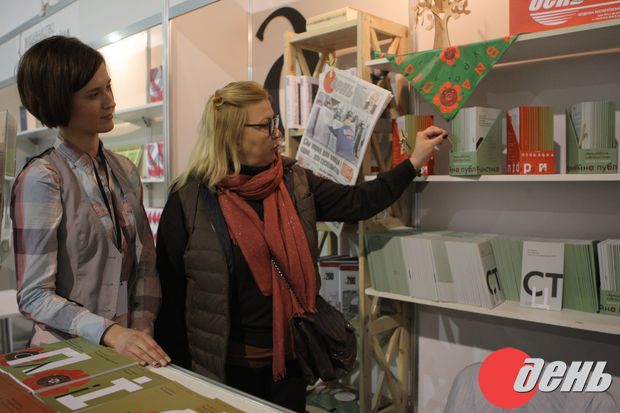
“It is necessary to take advantage of the [international community’s] heightened interest in Ukraine to reinforce the position of Ukrainian book publishing and culture in the world,” stressed Eric Tosati, Counselor for Culture and Cooperation, Director of the French Institute in Ukraine. As a matter of fact, France was in the center of attention that night, considering that it had been chosen as a guest of honor of the festival. During the ceremony of opening the Book Arsenal exhibit, Alain Remy, Ambassador Extraordinary and Plenipotentiary of France to Ukraine, handed the Ukrainian author, Andrii Kurkov, France’s most coveted award, Ordre national de la Legion d’honneur, the National Order of the Legion of Honor (Kurkov is reported to be finishing work on a book about the Euromaidan; the man says this book is meant for the reader abroad in the first place, and that a French version will be ready in May).
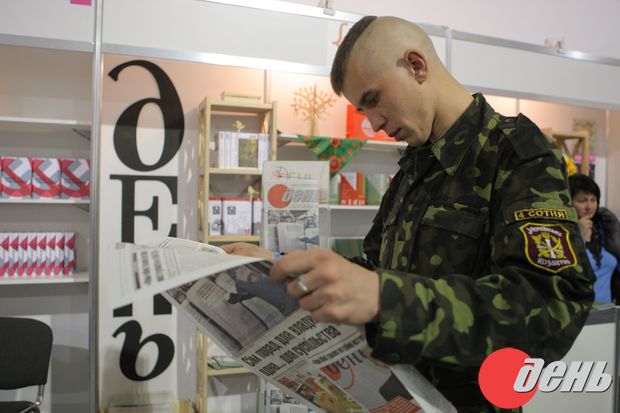
Den/The Day has its own stand at the Book Arsenal exhibit that displays copies of its Library Series and offers visitors to subscribe for the next half of the year, on preferred terms. Judging by visitors’ comments, the “Armor-Piercing Political Writing” and “Subversive Literature” are topping the popularity list.
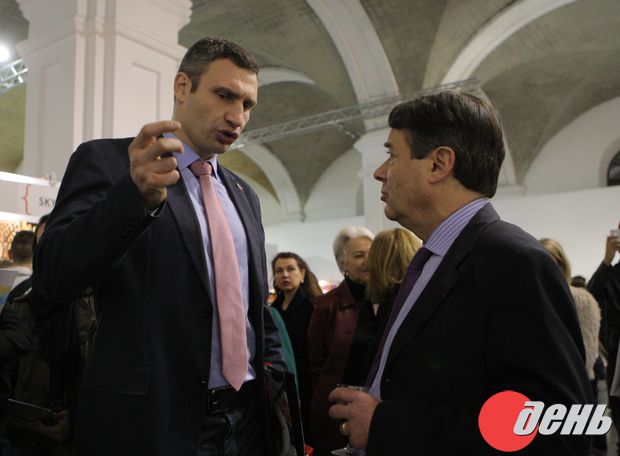
Says Viktor Manoilenko, construction engineer: “I recently read George Shevelov’s essay ‘Moscow, Maroseika’ and found it very topical. The author reveals the background of a number of current pressing issues. I re-read it several times and singled out the most significant aspects. Ukraine, regrettably, tends to move in circles. I’d hate to see history repeat itself, but to prevent this from happening, we must learn the lessons of previous epochs. Moscow, provincialism, and the Kochubei period – these are traditional Ukrainian problems. We all of us can see their consequences today. Unfortunately, most Ukrainians were raised using Soviet literary standards, and such literary works were taboo at the time. Now we must read them, learn from them, and make our own conclusions. This is especially true of all those who insist on being members of the elite.”
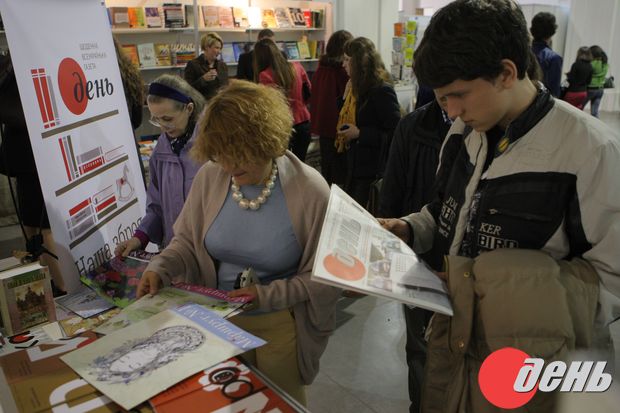
Book Arsenal exhibit will close after April 13.


